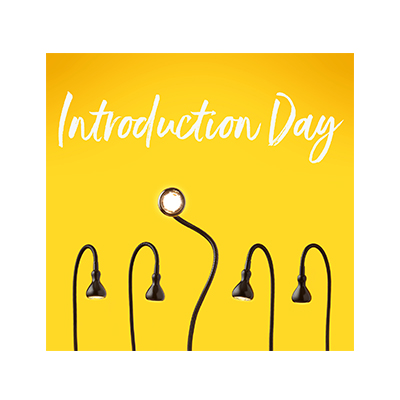Five lessons from lockdown
by Hoffman features editor, Nikki Wyatt
As we each approach our individual version of the ‘new normal’, Nikki Wyatt looks at five lessons we can all take from this transformative time.
Find the love, not the fear
 We’ve all seen very different reactions through this crisis: from fearful stockpilers and those in denial to the self-sacrificing care workers voluntarily isolating from their families so they can look after complete strangers. You might have been surprised at your own impulses or responses as you moved out of your comfort zone.
We’ve all seen very different reactions through this crisis: from fearful stockpilers and those in denial to the self-sacrificing care workers voluntarily isolating from their families so they can look after complete strangers. You might have been surprised at your own impulses or responses as you moved out of your comfort zone.
Our actions come from the stories that we tell ourselves – whether those arise from scary scenarios in our head or compassionate feelings in our heart. Our mood – and therefore or actions – will depend on where we keep our focus.
Without denying the seriousness of a situation, keeping our attention on kindness and generosity and doing our bit to add to that can do wonders for our mental health. Yes, times have been challenging, but there has been positivity too. Neighbours who had never spoken before are now doing each other’s shopping, whole streets have set up WhatsApp groups to stay connected, and there’s an increased willingness to provide attention, support and befriending to older and more vulnerable people.
Our hearts need emotional exercise as well as physical workouts. Take a moment to open your heart and see what you could do, or continue to do, to add to this positivity. Make a phone call, send an uplifting message, befriend someone – it will give purpose to your day and put you in touch with the positive, loving aspect of your self.
Treasure stillness
 For many of us, the biggest change of the past few months has been moving from a fast-paced environment surrounded by people to a much quieter, slower existence. If you use busy-ness and outside noise to avoid feelings and inner chatter, this may have been difficult – but it could also become an opportunity to embrace some new practices.
For many of us, the biggest change of the past few months has been moving from a fast-paced environment surrounded by people to a much quieter, slower existence. If you use busy-ness and outside noise to avoid feelings and inner chatter, this may have been difficult – but it could also become an opportunity to embrace some new practices.
As we move back into the world, instead of leaping straight back into the same busy environment you left, make a commitment to set aside some quiet time each day to press pause. Sit with stillness, and see what happens. If it’s hard, begin with a couple of minutes and build up gradually.
Watch what feelings and thoughts arise. Focusing on your out-breath will help you stay detached and not get caught up in your emotions. Note down what feelings come up, such as boredom, frustration, relief, nostalgia, sadness, anxiety or curiosity. If you do this every day, you’ll begin to see your most dominant feelings and map out your emotional landscape. For more help, you could try a meditation app like Headspace or Calm.
You can do stillness exercises with children too. As you share what thoughts and feelings come up, you’ll create greater intimacy, trust and reassurance that comes from feeling seen and heard.
Bathe in nature’s beauty
 The one thing many of us will take away from this lockdown is an increased appreciation of the great outdoors. Nature in all its forms is a great aid to mental wellbeing, and its endless variety means there’s something there for everyone.
The one thing many of us will take away from this lockdown is an increased appreciation of the great outdoors. Nature in all its forms is a great aid to mental wellbeing, and its endless variety means there’s something there for everyone.
As you move back into your old routine, can you make a conscious choice to seek out one item of natural beauty and appreciate it every day? Appreciation can take many forms. It might be making a sketch of colourful flowers or newly-opening tree buds from your window. It could be looking out for wildlife or listening to the birds in a garden or park. It could be simply watching the sun rise or set and mindfully noticing the changes it makes to the sky.
These all remind us of the timelessness of nature’s cycles and that, no matter what else is happening, the show goes on – and it’s pretty spectacular.
Keep in touch with your creativity
 Expressing creativity is a pathway to experiencing joy and lessening anxiety. Perhaps you’ve had had time during lockdown to make a start on long-held creative goals, or perhaps not – but it’s never too late to make a start.
Expressing creativity is a pathway to experiencing joy and lessening anxiety. Perhaps you’ve had had time during lockdown to make a start on long-held creative goals, or perhaps not – but it’s never too late to make a start.
Perhaps you’ve always wanted to learn a language or sign language, or to master an instrument? Maybe now’s the time to try out a new recipe, plant beautiful flowers or cultivate vegetables, learn to draw, juggle or do card tricks. Perhaps you’ve always wanted to write poetry or fiction, or you’ve always intended to write the story of your life so far to hand down the family.
Get your creative juices flowing by going on the free virtual tours that museums and art galleries have now created, or by listening to audiobooks as you go about routine tasks. At some point, you’ll hear an inner ‘yes’ – some spark that will get you out of bed each day with a spring in your step. If you know you’re not a starter-finisher, you could join a virtual group to keep you accountable and share the fun or ask your household to be your cheerleaders.
A simple first step to getting in touch with your creative side is to draw how you’re feeling. You can do this with children too. Create an art gallery on the wall or the fridge – there’s nothing like crayons and colour to lighten the mood.
Value your Vision
 A positive, pro-active vision for the future can help hugely in uncertain times. Rather than letting old routines passively reclaim you, can you actively spend some time thinking about what you really want your ‘new normal’ to be?
A positive, pro-active vision for the future can help hugely in uncertain times. Rather than letting old routines passively reclaim you, can you actively spend some time thinking about what you really want your ‘new normal’ to be?
Often we don’t dare to dream of a new future because the changes we’d need to make to achieve it can seem too hard. But now we’ve all had huge change thrust upon us and it’s unlikely our lives will be quite the same again. Dig deep into your most heartfelt desires.
So much has dropped away already that it may actually be easier to see what actually matters; what you’ve missed most. Create a vision board – perhaps brainstorm it, with partners or family. Then keep it in view as a constant reminder of what your heart really wants.
If you’ve been inspired by any of the above and would like to find out whether Hoffman can help you in achieving your ‘new normal’, you’re very welcome to join one of our fortnightly information webinars, or to book a one-to-one call with a member of the team. Click here for more details.
Hoffman graduates can find lots of help with tools to support all the ideas above in the Hoffman toolkit, by listening to visualisations or joining a Wednesday webinar or regional support group.






 Sign up to receive monthly newsletters from Hoffman
Sign up to receive monthly newsletters from Hoffman